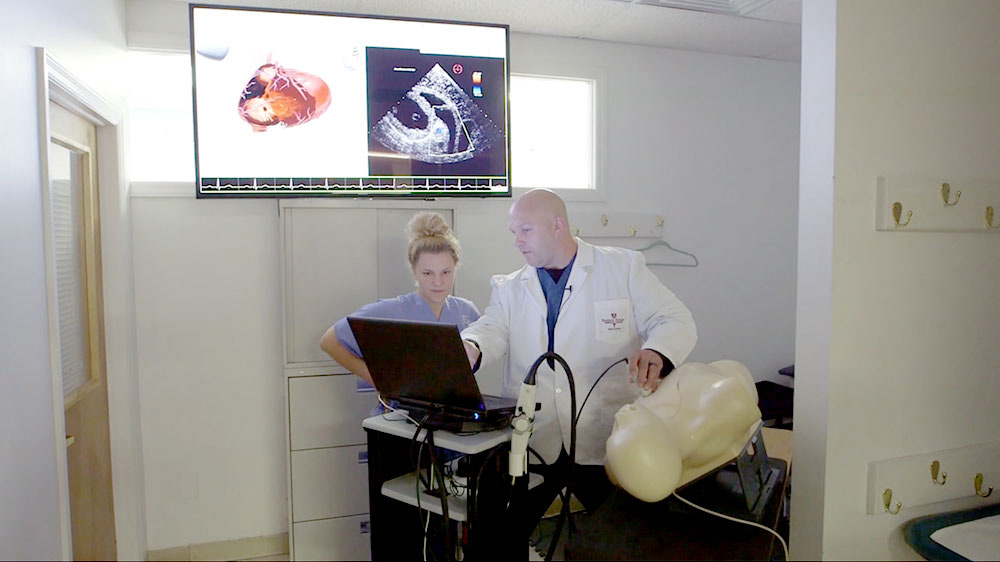Students study the heart and vascular system ready to enter workforce in 24 months at Eastwick College
Diagnostic ultrasound is one of the most widely used medical tests in the nation and continues to increase in popularity due to its use as a safe and versatile detection method. This is especially true as the elderly population grows and cardiovascular disease remains a significant risk for many. In order to fulfill the growing demand for medical professionals trained in this popular field, Eastwick College is offering a specialized cardiovascular sonography program at their Ramsey and Nutley campuses, available as an associate or bachelor’s degree. In addition, those already working in the field as registered techs have the opportunity to complete the bachelor’s path of the program in as little as 12 months through transfer credits based on their registry credentials.
“If you’re looking to enter the medical field or take the next step up in your training, our sonography degree is a great option,” explains President Thomas M. Eastwick. “There are simply not enough trained ultrasound techs to meet current employer demand, which means strong career opportunities for our graduates.”
Cardiovascular sonography is used to create internal images of the heart and vascular system through the use of sound waves, which bounce back and are translated into images by a computer. Ultrasound does not involve the use of radiation, making it an appealing option to patients. Students learn to check the heart for subtle differences between healthy and diseased areas, determine if scanned images are satisfactory for diagnostic purposes, and record additional medical history.
What surprises many is the level of skill and finesse required for the job. A skilled sonographer has to have an eye for detail and strong spatial reasoning in order to note abnormalities among a series of different scan imagery and provide an accurate assessment of the patient.
The Department of Labor reports that the employment of diagnostic medical sonographers is expected to increase by 39 percent by 2022, more than three times the national job growth rate. And on average, cardiovascular sonographers in the NJ/NY Metro Area make $61,820 according to the U.S. Bureau of Labor Statistics.
“Our students train on the latest medical technology in hands-on laboratory classroom settings, so they’re fully-prepared when they enter their new career. In fact, employers consistently report that our graduates are some of their best trained employees,” adds President Eastwick.
In addition to their sonography degree, Eastwick College offers a variety of healthcare programs, including licensed practical nursing (LPN), occupational therapy assisting, medical assisting, and surgical technology.

